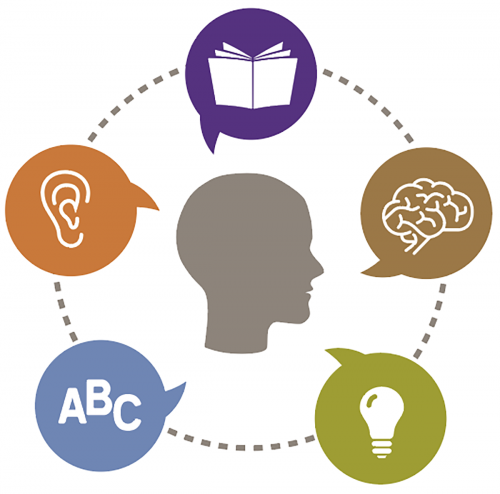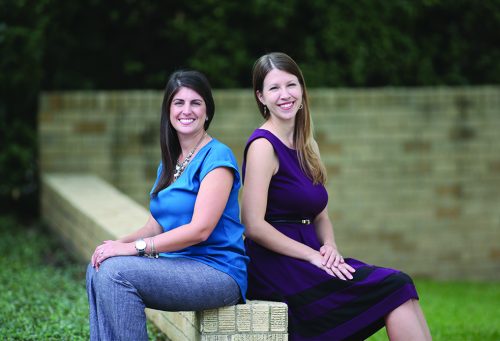Understanding Literacy in Kids with Cochlear Implants
Even with hearing corrected, children may lag behind in language or reading comprehension.
Understanding Literacy in Kids with Cochlear Implants
Even with hearing corrected, children may lag behind in language or reading comprehension.
Listening and learning go together, but improving children’s ability to do the former doesn’t always help the latter.

Getty Images © POINTS
Hearing problems, even when corrected, can put students at a disadvantage. Students who got cochlear implants as young children often still read at levels below their peers in high school.
Emily Lund, assistant professor at the Davies School of Communication Sciences & Disorders, is exploring whether a lack of phonological awareness — the understanding of how sounds make up words — is related to vocabulary size in children with cochlear implants.
To conduct the research, Lund received a $282,807 grant from the National Institutes of Health. Her study aims to better understand early literacy development in children with cochlear implants in order to improve treating literacy delays.
Aided by undergraduate assistants, Lund studied the differences between children with cochlear implants and those with normal hearing in how well they understood the sonic components of words. She wanted to determine if children with cochlear implants knew fewer dense words, which sound similar to other words like cat, hat, cap. She also investigated whether those children connected similar sounds in different words, such as the “m” in moon and mouse, and performed worse on phonological awareness tasks.
Lund explored an early literacy deficit in once-deaf children that does not directly result from their speech-perception limitations.

Danielle Brimo, left, assistant professor at the Davies School of Communication Sciences & Disorders, is analyzing the effectiveness of grammar instruction for students with below-average language or reading-comprehension skills. Emily Lund, assistant professor at the Davies School, is exploring early literacy development in children with cochlear implants in hopes of better treatments for literacy delays. Photo by Carolyn Cruz
“The findings could indicate that giving children who were deaf access to sound through a cochlear implant isn’t sufficient to help a child develop literacy skills organically,” she said. “We also need to consider how we teach these skills to children who aren’t used to learning through listening.”
Kids with perfect hearing also can have trouble learning to read. Danielle Brimo, assistant professor at the Davies School, researched the effectiveness of current grammar-based methods for teaching children who display below-average language or reading comprehension.
“Unfortunately, there is limited research in our field that supports effective grammar interventions for school-age children,” she said. “The goal of this study is to provide practitioners with an effective intervention they can use.”
These findings suggest that the language-development coursework that prepares students for clinical practice needs to be revised.
Danielle Brimo, assistant professor at the Davies School of Communication Sciences & Disorders
Brimo examined whether children improve their grammatical knowledge more after receiving explicit instruction — traditional methods emphasizing language forms and grammar rules — or implicit instruction, which focuses on meaning rather than rules or form.
Brimo also studied whether aspiring educators and speech practitioners have the language skills necessary to teach grammar-deficient children effectively. The professor and Tina Melamed ’16 MS, who earned a master’s degree in speech pathology, completed a pilot study with students in education and speech-language pathology at TCU. The researchers also surveyed pre-professional students at Abilene Christian University and the University of Virginia.
The pilot survey indicated that students who took language-development courses did not have any advantages over students who did not have such coursework, Brimo said. “These findings suggest that the language-development coursework that prepares students for clinical practice needs to be revised.”

Your comments are welcome
1 Comment
Related reading:
Campus News: Alma Matters, Research + Discovery
Bilingual Speech Therapy for Stroke Survivors
A monthly bilingual support group at Miller Speech & Hearing Clinic offers hope for people working to regain the ability to speak.
Campus News: Alma Matters
Critical Literacy in the Classroom
Inside the Classroom: Education majors learn to approach society’s issues through children’s literature.
Campus News: Alma Matters
More than budgets
Economic development scholar Dawn Elliott helps people in transition with financial literacy.